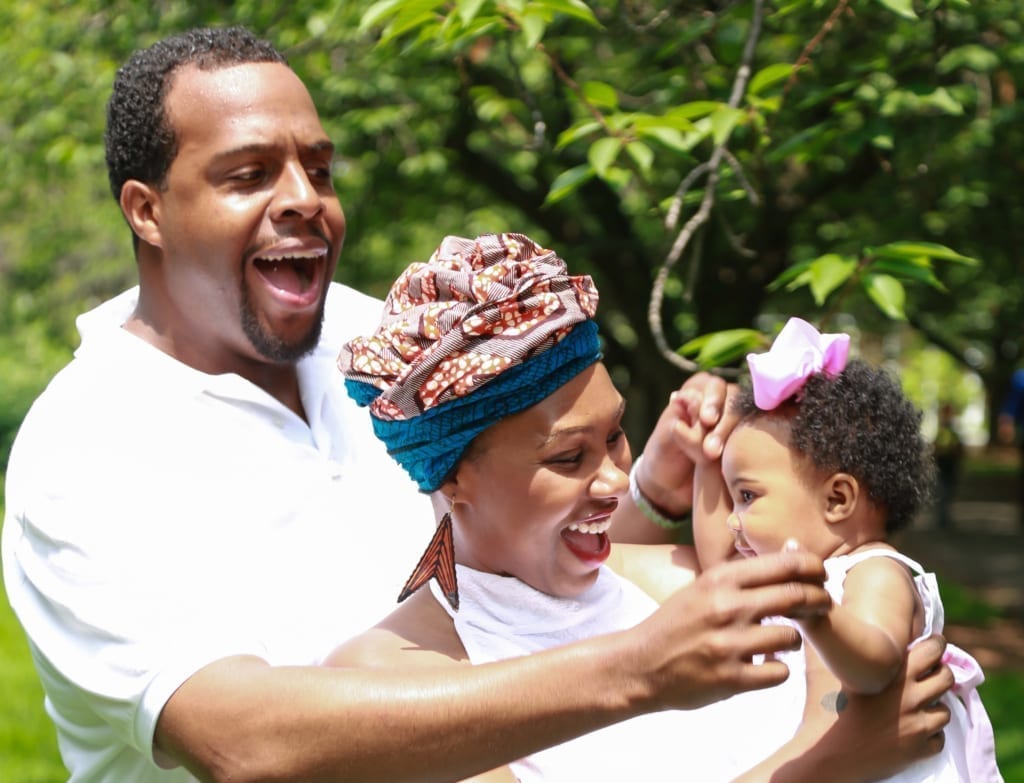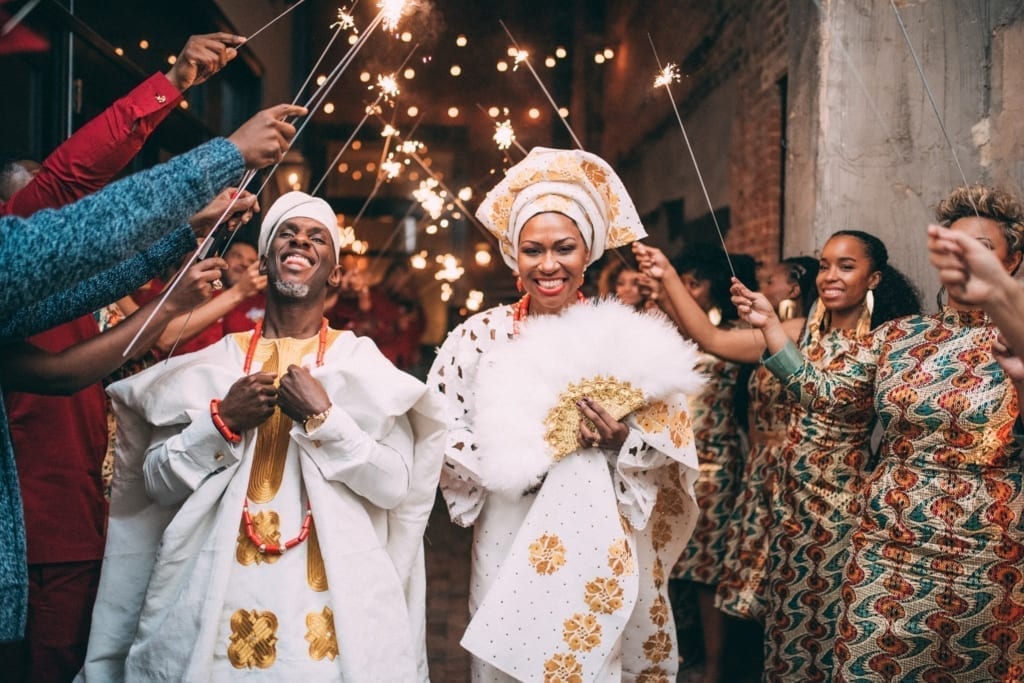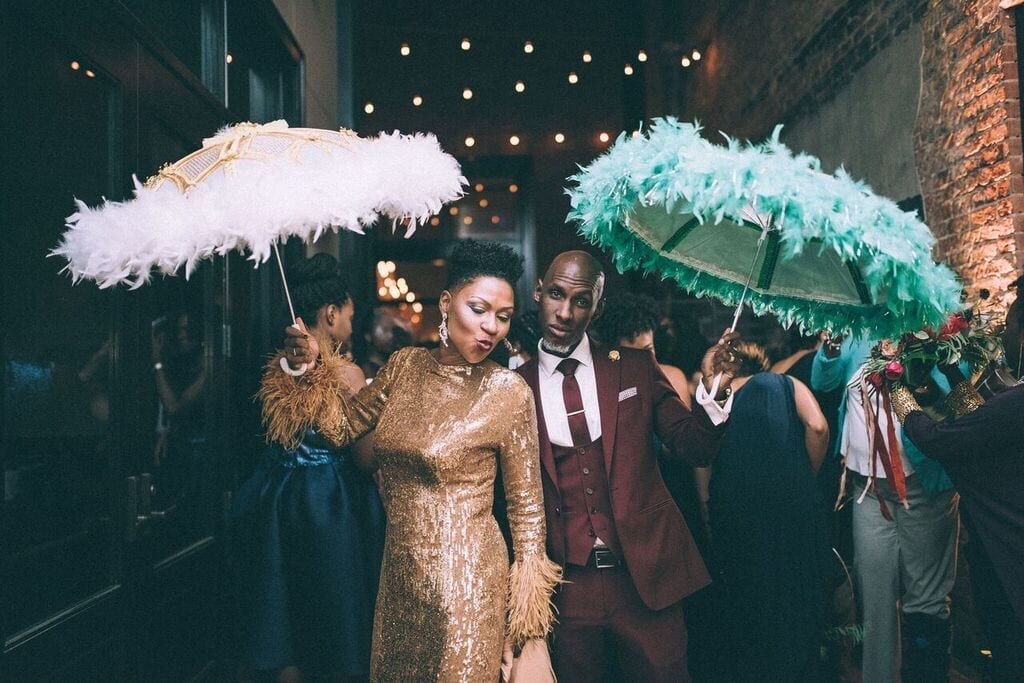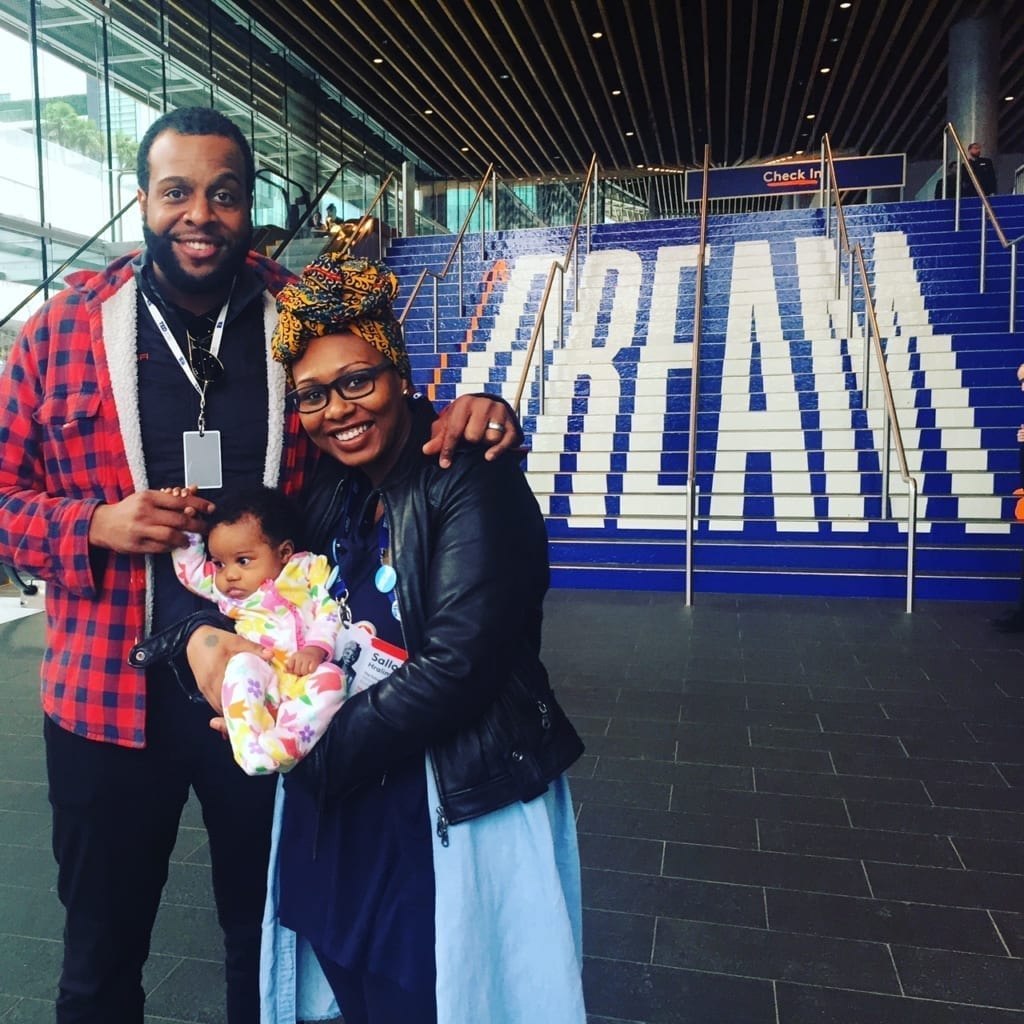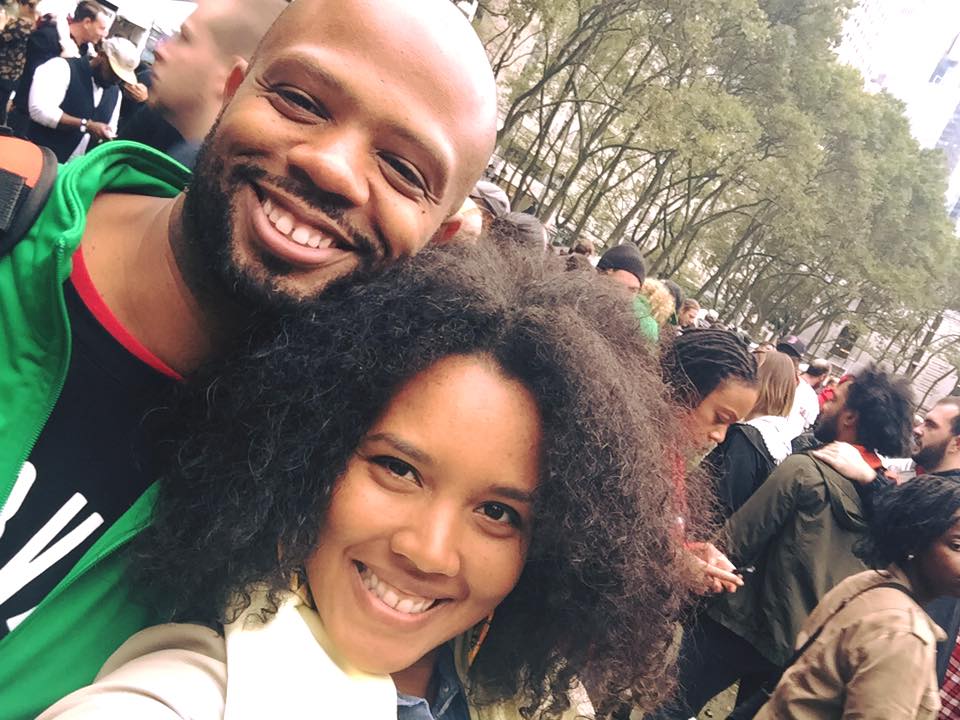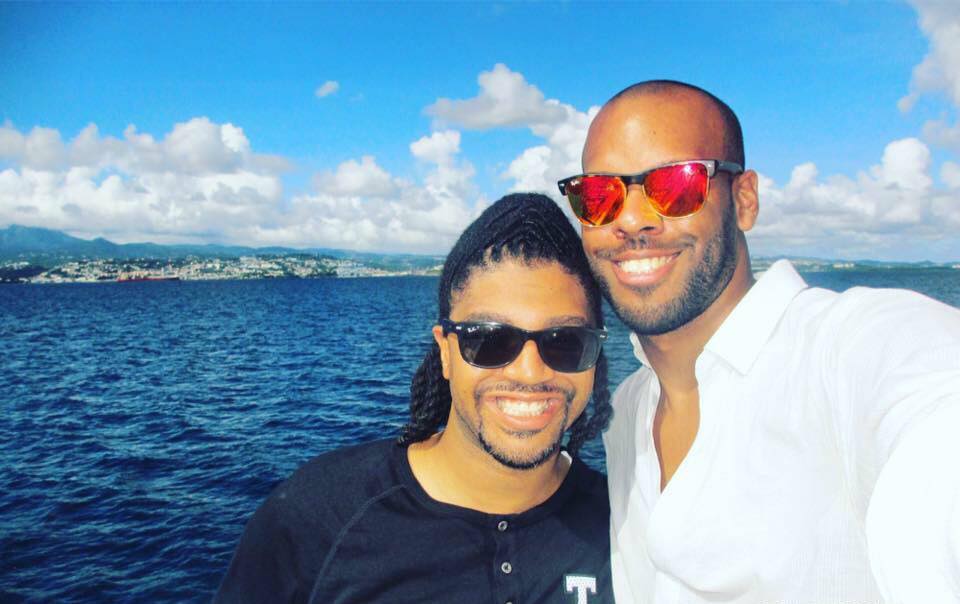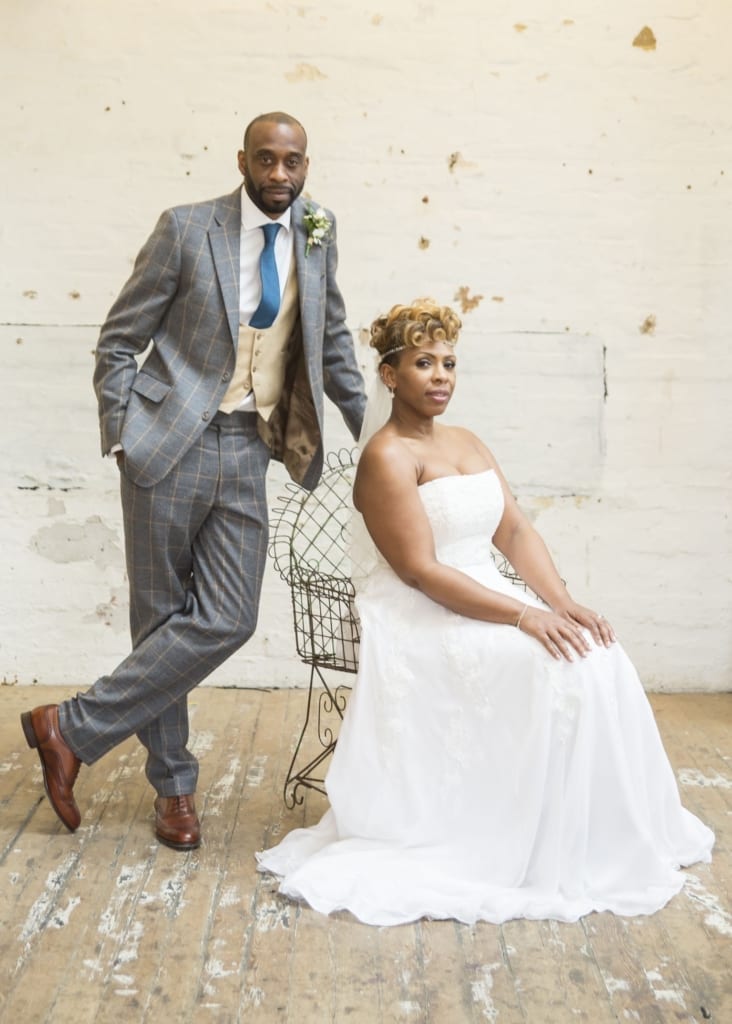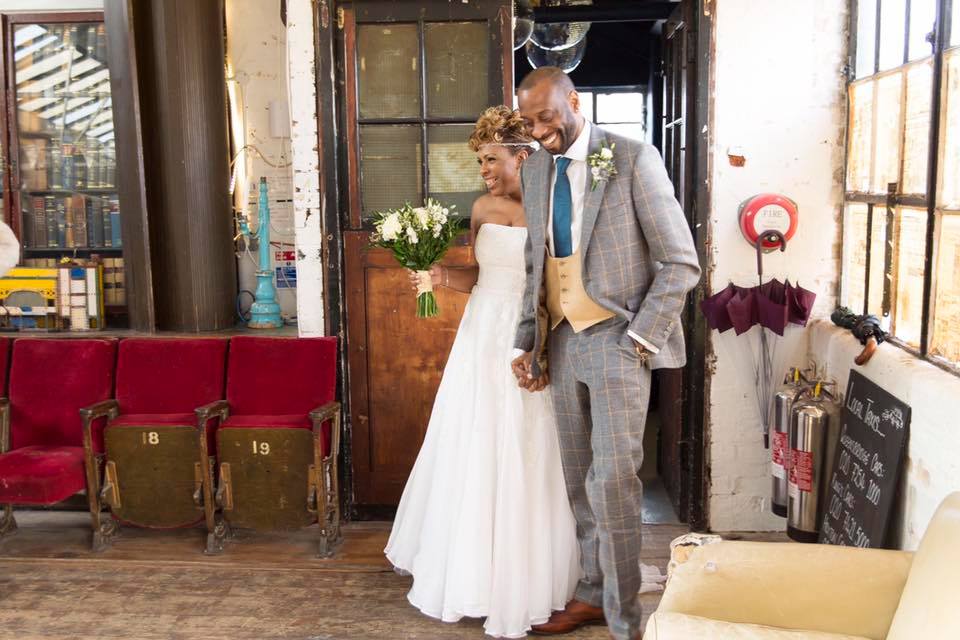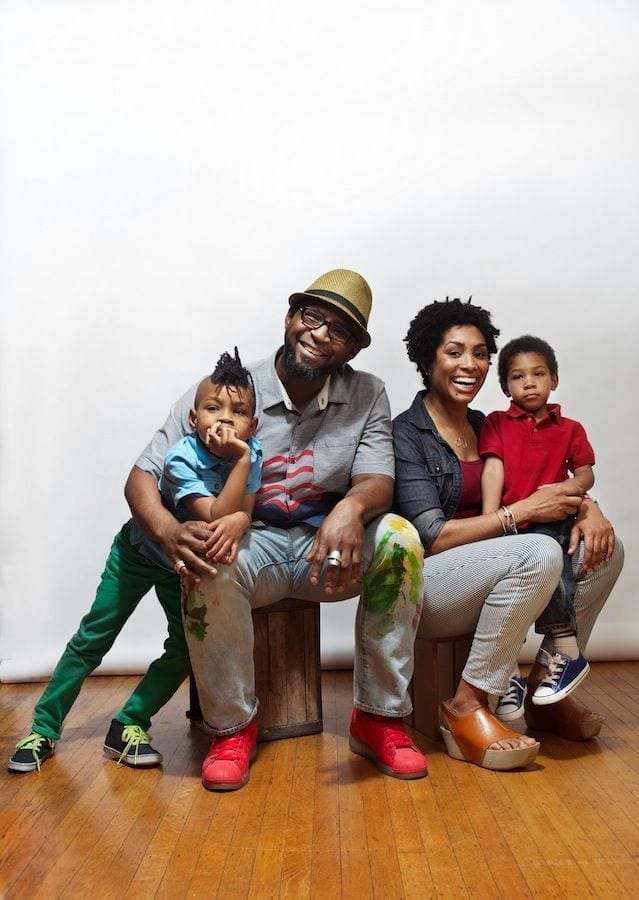A little over a month ago, I jumped the proverbial broom with my now husband, and threw what has been dubbed the #BlackestWeddingEver. There were ideas I had about our marriage that would directly follow the spectacular celebration that we threw in honor of our matrimony.
However, the concept that I never gave too much thought to was my name. So the moment I became Mrs. … I drew a blank. Do I change my name? Do I hyphenate? Do I keep the name given to me at birth? So many questions about something that is seemingly an easy decision.
Yet, since it literally referred to my identity as a 38-year feminist woman, with quite a significant career attached to a particular name, the decision hasn’t been so easy. I know the history behind the Lewis name that I carry. A name not passed down through slavery but a name that my Jamaican great-grandfather took when he migrated to this country. So it has meaning to me. I talked it over with my brand new husband, who is a Nigerian Yoruba man, whose own last name isn’t a traditional one. His only family is Yoruba by way of Togo where the Lawson name has existed for over a century. There’s even a book about them. So there is much to consider, at least on my part.
While going through the various options in my own mind, I became quite curious not only about women who hyphenated their names but also men, who have done the same. So I started reviewing my mental rolodex of married friends where both individuals hyphenated their names, or took on an entirely new name altogether.
I decided to engage them a little, if not only to settle my own conundrum, but to shed a little light on the ever evolving tradition that we know as holy matrimony and the establishment of new traditions.
Their responses were quite fascinating but at the end of the day, what I learned the most from this journalistic exercise is that when it comes to marriage, whatever you and your partner decide should be solely based on the two of you. What works for you, works for you. Everyone else can figure out what works for them. In our case, WE have made the decision that his name will remain the same and that I’ll decide on a name that makes the most sense and is most comfortable for me.
–Mrs. Shantrelle P. Lewis…for now
Meet the Periods
Ibrahim., 34, Architect, Brooklyn, NY
Sallomé., 36, Social Architect, Brooklyn, NY
SB: Whose idea was it to change both of your names to something new?
The Periods: It was both of our ideas. When we began discussing marriage, we naturally needed to address “the last name.” After we reflected on what our parents had done, we realized that choosing something altogether different we would actually be following family tradition. Our parents married in a time when Black Americans were Black and proud – and changed their names as a form of self-determination.
SB: How did the other partner initially respond?
Sallomé: We were both excited by the idea.
Ibrahim: As a result of the war on Islam, I have had difficulty traveling. My full government includes multiple common Muslim names and makes me an alleged target. As an adult I don’t practice Islam. Therefore, dropping those names for the opportunity to travel freely was practical.
Sallomé: Once I realized that both his parents and mine had changed their names, I was hype to follow in that tradition.
SB: What made y’all change it to Period?
Sallomé: We wanted a name we would share once we were married. And didn’t go through a laundry list. Ib said: “I want it to just be Ibrahim. Like Madonna. Ibrahim, period.”And I said, yeah Ibrahim Period. He said, can we do that? You know, use the punctuation? I said no. But you can use the letters and sign everything Ibrahim.
SB: WOW. Did you just happen to know that already? Or did you look into it?
Sallomé: I remember from researching Malcolm X.
SB: What significance does it have for you as a couple? What made you decide to do it?
The Periods: We are blazing our own trail. We want to create a legacy that is uniquely ours.
SB: How did people in your families respond?
Ibrahim: My parents were not supportive.
Sallomé: My mom immediately began sending mail to the house with the name we’d chosen, even before we submitted any paperwork.
SB: What’s the general response from friends and strangers?
The Periods: At first, people are in disbelief at our chosen name. They usually ask a question to be sure that they heard correctly. Then they ask whose family name we chose to take – his or hers. It doesn’t occur to most folks that we would pick an entirely different name, versus selecting one of our names or even hyphenating.
SB: What would you say to a couple who is currently making this decision?
The Periods: Once the two of you come to an agreement, ignore what anybody else has to say.
Meet the Lewis-McCoys
Dr. R. L’Heureux Lewis-McCoy aka Dumi Eyidiyiye, 38, Professor, New York, NY
Aisha Lewis-McCoy aka Thandiwe Chukwu, 34, Lawyer, New York, NY

SB: Whose idea was it to hyphenate both of your names?
Dumi: I am not sure who officially came up with the idea, but it was something we were both open to. We thought that marriage was a chance to establish a new family line. We came from our own family lines and choosing a name that celebrated all those aspects was appropriate.
SB: How did the your partner respond?
Dumi: She responded well. In fact, the bigger question was, which names to use and which order to place them in. She eventually opted for the surname that was attached to her biological father’s line despite not knowing him while he was alive.
However, she chose his family’s surname to celebrate all of the family within that line that nurtured her ascent into adulthood. I kept the Lewis portion of my name and I think in some ways it was important for my family since I am the last male offspring in my family line with the last name Lewis.
SB: What significance does it have for you as a couple? What made you decide to do it?
Dumi: It’s very significant because we now share a lineage and a tradition. Naming is a special act for us, particularly as people of African descent.
The opportunity to honor our ancestors and create a new path is a daily reminder of why we chose to get married and to hyphenate. It also means that our children will carry this same tradition and will eventually choose to birth their own traditions of honor and creation.
Ultimately, we both identify as feminists and/or anti-patriarchal and could not imagine why one of us should be forced to actively erase our heritage in the form of names. Often, it is assumed that the woman will take the man’s name in heterosexual relationships and neither of us liked that assumption nor the coercion that often comes of it.
SB: How did people in your families respond?
Dumi: On my side they were thrilled, because they loved who I chose to marry and thought the idea of adding a name and marrying not just individual but families was great. It has take some getting used to with the adding of McCoy for some to my surname, but the response has been nothing but positive.
SB: What’s the general response from friends and strangers?
Dumi: Well typically strangers act like they can’t figure out how to read names on both sides of the hyphen, but they get it once we respond, “Lewis-McCoy–it’s one name with a dash in the middle.” Strangers have asked me where the name came from and when I proudly tell them, ‘it’s my and my partner’s joint last name’ I get a lot of “cools”, and “oh, I like that!”
SB: What would you say to a couple who is currently making this decision?
Dumi: I think it’s important to talk about the decision and listen to your partners goals and find the common ground. For us, it was a great way to further create a union that we wanted to be anti-patriarchal but full of ancestral love and new beginnings. When naming, you get a chance to draw on and create tradition, don’t take it lightly. Also, make sure to interrogate each of your beliefs about names, power, and even Nommo. We live in the world that the ancestors guide and we get to be divine co-creators.
Meet the The Dottin-Haleys
Blair Dottin-Haley, 38, Operations Manager, Washington, DC metro area
Brandon Dottin-Haley, 30, Account Executive, Washington, DC metro area
SB: Whose idea was it to hyphenate both of your names?
Blair: It was a mutual decision. The only discussion was around the order we’d take since we’re both men. Also due to the history of my family name, I (Blair) felt strongly about keeping my last name and adding his name at the end of my name.
SB: How did your partner respond?
Blair: It was a very non-contentious decision. We both agreed.
SB: What significance does it have for you as a couple? What made you decide to do it?
Blair: As one of the only gay married couples in both our families it was significant to us to celebrate and honor our marriage by taking each other’s last names and keeping our own.
SB: How did people in your families respond?
Blair: Mixed responses, mostly on the marriage as a whole. Generally, folks on both sides of our families were supportive.
SB: What’s the general response from friends and strangers?
Blair: Mostly responsive, I’ve had some folks get in their feelings when they call me by just one of my last names and I correct them.
SB: What would you say to a couple who is currently making this decision?
Blair: Do what works for you two, no one else’s opinion really matters!! You both have to live with it!
Meet the Escoffery-Ojos
Osiki Escoffery-Ojo, 48, Record producer/Remixer/Mix Engineer, London, UK
Michelle Escoffery-Ojo, 42, Songwriter/Lecturer/Success coach, London, UK
SB: Whose idea was it to hyphenate both of your names?
Michelle: I have always wanted to have a hyphenated name as I didn’t want to give up my last name as it is my legacy.
Osiki: I told Iyawo I didn’t want her to feel she had to give up anything, especially her name. She’s worked very hard throughout her life to build her career and continue her Father’s legacy, so knew I wanted her to keep her name, not just for work purposes, but for heritage purposes too. I am proud of what she has done with her name and the reputation she has built for herself professionally with her family name. I didn’t want her to lose that.
SB: How did the other partner respond?
Michelle: I was shocked when Osiki suggested we took each other’s names. I’ve never met a man who’s wanted to do that.
SB: What significance does it have for you as a couple?
Osiki: We both come from prominent families. It is important for our blood lines not to be lost. If we have children, they will carry both of our names. No name is more important than the other, that’s more important to me.
Michelle: For me, it signifies everything we share. Our values, our spirituality, our ideas, visions and dreams, our home, our children.. why not our names?
SB: What made you decide to do it?
Michelle: To continue both legacies. We took each other’s names as an acknowledgment of the respect we have for each other and our respective families. We are adding to our power. Also, I’d like to add that I come from an immediate family of girls and my father has now passed. I was very aware that if I gave up my name, the name would now be lost. It’s really important for me to carry my Father’s name.
Osiki: Also, if we have children, they will carry both of our names and know what these names mean, what value they hold.
SB: How did people in your families respond?
Michelle: We’ve had some raised eyebrows. Some have the perception that a man taking a woman’s name is a sign of weakness. That couldn’t be farther from the truth. To me, it shows just how much Osiki knows himself and his worth to be able to share my name.
Osiki: One of my friends was quite offended at first that I took my wife’s name also. It’s not the African way. I explained my reasoning. My wife has worked hard by herself. I have no desire to take that away from her. She will always keep her name professionally, but I don’t believe she should have to give it up to be married to me. I am very proud to add my wife’s name to mine. I have joined her family and I love it.
SB: What’s the general response from friends and strangers?
Michelle: Generally positive. Most of my friends knew I wouldn’t give up my name, but are pleasantly surprised that we both took each other’s names.
SB: What would you say to a couple who is currently making this decision?
Michelle: It’s a personal and powerful decision. For us it has leveled the foundation we are building upon because we have, through this act, acknowledged that no one person is more important than the other.
We’ve chosen to honour each other in this way and it has further unified us because none of us have felt like we’ve had to give up anything to be with each other. There is no right or wrong. Be open to the thought and conversation and see where it takes you.
I never dreamed Osiki would take my name, I just didn’t want to give mine up. I definitely have more respect and admiration for him for meeting me where I am at and celebrating both of our heritages.
Osiki: If you want to do it, do it and don’t worry about what anyone else thinks or says. I’ve had no regrets at all.
Last but not least, Meet the Bennus
Jamyla Bennu, 40ish, Founder & Mixstress, Oyin Handmade, Baltimore, MD
Pierre Bennu, 40ish, Multimedia Artist & Director, Exittheapple Artspace, Baltimore, MD
SB: Whose idea was it to change both of your names to something new?
The Bennus: It came up organically. We thought it would be nice to share a name for this new family unit we were creating, but didn’t want to necessarily double down on either of the last names we’d been born with. Like oooh, do we call ourselves by the patriarchally inherited name of your paternal ancestors’ former kidnappers and enslavers? Or of mine?
And either way, we were cutting off a portion of our ancestry because no feminine ancestry is recognized in standard naming convention. We rather casually decided we’d either keep what we came with, or both change together if we found something that resonated.
SB: What significance does the name have for you as a couple?
The Bennus: The Bennu is the mythical fire-heron of ancient Egypt; its mythology is said to be the precursor to the phoenix myth. It symbolized rebirth, renewal, and the power of the sun, which we thought was wonderful symbology for our new start together. It was Diasporically connected, with an African origin. It sounded great with each of our first names. When we heard it, we looked at each other like, ‘that’s IT!’
It even had the same first initial as both of our original last names – so we didn’t have to change the monograms on our towels. (lol.) Fast forward seventeen years or so, and our little boys are PSYCHED that there’s an asteroid with our family name and attendant NASA space mission. So… that worked out nicely.
SB: How did your families respond?
The Bennus: We’d already been pretty unconventional, marrying so young and sort of eloping and having tattoos instead of rings, etc. This may be part of the reason we didn’t get much pushback on the name in particular, lol. Family responses ranged from supportive to bemused.
Jamyla’s mom has a hyphenated last name, so she definitely got it, and thought it was really cool that we both changed. Pierre’s dad still sometimes addresses birthday cards to our children (who were born Bennus) using his own last name, lol. Bless his heart.
SB: What’s the general response from friends and strangers?
The Bennus: We suspect folks generally assume that Bennu is Pierre’s last name… judging by the surprise we are faced with when it comes up in conversation that neither of us was born a Bennu. People are typically surprised and pleased to learn about it, and sometimes even inspired, like this was a possibility they hadn’t considered.
What would you say to a couple who is currently making this decision?
The Bennus: It’s a big decision. Your name is one of the first things people learn about you, and you say and hear it often. It should feel good, be meaningful to you, make you feel connected to each other, to your families, to your culture/s. Starting a family union together is a perfect time to consider the choices around naming conventions… and there’s more than one way to challenge convention, if you decide that’s what you want to do.
Use your imagination. Consider identity numerology if that matters to you, career (if you have a byline to protect, have published under your birth name, etc), and also how it feels to you. Brainstorm all the potential teasing nicknames any future kids will have to endure. Ya know. The important stuff.

